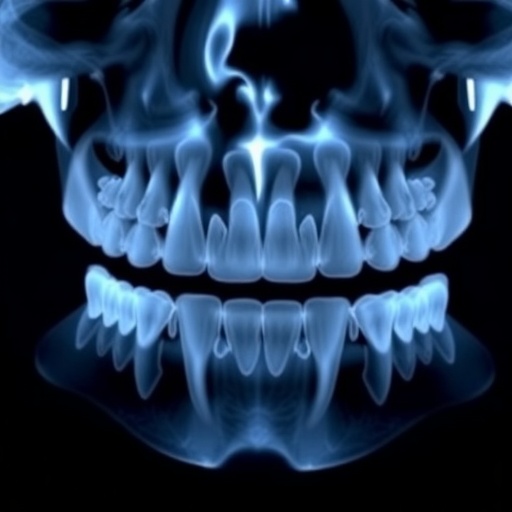In recent years, the integration of artificial intelligence (AI) into various fields of education has prompted significant advancements, particularly in medical and dental training. A groundbreaking study conducted by Gokkurt Yilmaz et al. has provided compelling evidence for the effectiveness of AI-assisted personalized feedback in enhancing radiographic diagnostic performance among dental students. This research not only underscores the potential of technology in education but also opens the door to a new paradigm in training future dental professionals.
The study, published in BMC Medical Education, emphasizes the efficacy of utilizing AI to provide tailored feedback based on individual student performance in radiographic tasks. The research involved a controlled study where dental students were divided into groups receiving either traditional feedback or AI-assisted personalized feedback. This controlled environment enabled the researchers to meticulously measure performance differences and ascertain the advantages offered by AI technologies.
In the realm of dental education, the ability to accurately interpret radiographs is crucial for diagnosing various oral health conditions. The traditional methods rely heavily on the experience of instructors, often leading to variability in feedback quality. The introduction of AI simplifies this process by systematically analyzing the students’ performance and providing instant, customized insights. These insights help in identifying specific areas of improvement for each student, ultimately fostering a more effective learning experience.
The research methodology included rigorous testing of both groups to evaluate their diagnostic accuracy and confidence levels when interpreting radiographic images. Students who received AI-assisted feedback demonstrated significant improvements in their diagnostic skills compared to their peers who relied on traditional feedback mechanisms. This significant disparity highlights the transformative role that AI can play in medical education.
Moreover, the study delves into the psychological impacts of receiving personalized feedback. Students benefitting from AI support reported increased confidence in their diagnostic abilities, reducing the anxiety typically associated with complex radiographic cases. This boost in self-assurance is critical in preparing future dentists for real-world situations where accurate diagnoses can directly affect patient outcomes.
As AI technology continues to advance, its applications in educational frameworks will likely expand beyond just radiography. The implications of this study suggest that similar methods can be applied across various aspects of dental education, including treatment planning and patient management. These advancements could lead to a new generation of dental professionals who are not only technically proficient but also adept at utilizing technology to enhance their clinical skills.
In addition to the technical advantages, the ethical considerations surrounding AI in education have come to the fore. The study addresses concerns regarding dependency on technology versus the critical thinking skills that traditional education fosters. However, the researchers advocate for a balanced approach, suggesting that AI should serve as a complement to traditional methods rather than a replacement. Such an integration could lead to a more holistic educational experience that equips students with both foundational knowledge and cutting-edge technological skills.
The findings of Gokkurt Yilmaz and colleagues have far-reaching consequences not only for dental education but also for medical training as a whole. The ability to effectively incorporate AI into curricula presents a significant opportunity to enhance learning outcomes and prepare students for the increasingly digitized healthcare landscape. It also raises questions about the future roles of educators and the evolving nature of teaching methodologies in the face of rapid technological advancements.
Discussion surrounding the deployment of AI in educational settings will likely intensify, fostering collaborations between educators, technologists, and policymakers to establish guidelines and best practices. Such dialogues are crucial to ensuring that AI is leveraged ethically and effectively while safeguarding the core principles of education. The results of this study will undoubtedly stimulate further research aimed at exploring the capabilities and limitations of AI in medical education.
In conclusion, the study conducted by Gokkurt Yilmaz et al. marks a pivotal moment in the application of AI within dental education. The research demonstrates that AI-assisted personalized feedback significantly enhances radiographic diagnostic performance among dental students, paving the way for more innovative approaches to medical training. As educators and institutions begin to embrace the potential of AI, the focus will shift towards creating inclusive and comprehensive educational experiences that marry technology with traditional learning.
The future of dental education is undoubtedly intertwined with artificial intelligence, as we witness a transformation that not only streamlines processes but also enriches the learning experience for students. As the healthcare landscape continues to evolve, the integration of AI into educational methodologies represents a promising frontier that could redefine how the next generation of dental professionals is trained.
This research stands as a beacon of innovation, showcasing the necessity of adapting educational practices to meet the demands of an ever-changing technological environment. The implications of such advancements will resonate throughout the field, ultimately benefiting not only students and educators but also patients who rely on skilled, adept healthcare professionals.
Subject of Research: The impact of AI-assisted personalized feedback on dental students’ radiographic diagnostic performance.
Article Title: Effect of artificial intelligence-assisted personalized feedback on radiographic diagnostic performance of dental students: a controlled study.
Article References:
Gokkurt Yilmaz, B.N., Ozbey, F. & Yilmaz, B.E. Effect of artificial intelligence-assisted personalized feedback on radiographic diagnostic performance of dental students: a controlled study.
BMC Med Educ 25, 1403 (2025). https://doi.org/10.1186/s12909-025-07875-4
Image Credits: AI Generated
DOI: 10.1186/s12909-025-07875-4
Keywords: AI, personalized feedback, dental education, radiographic performance, medical education, technology in education.




